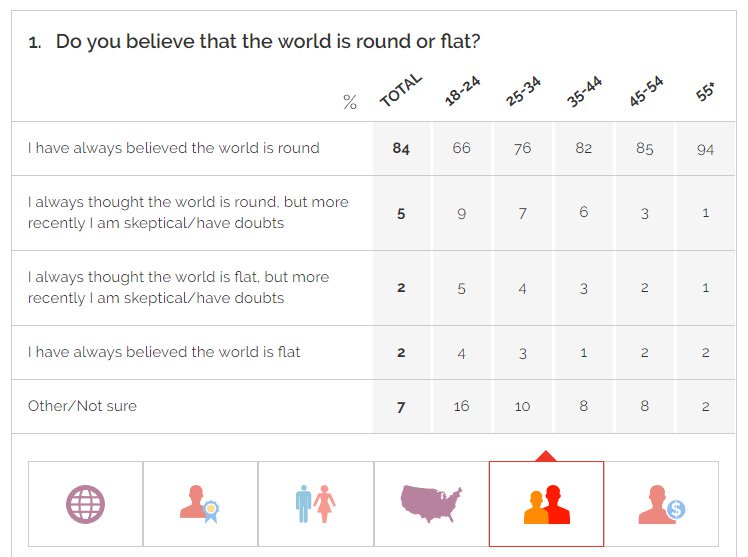qed
Senior Member
express.co.uk/news/scienceExternal Quote:FLAT EARTH SHOCK: Third of millennials NOT convinced Earth is round
Despite overwhelming evidence that Earth is a spherical globe-shape, including both pictorial and video evidence, a third of young people believe that the Earth could be flat.
A survey carried out by YouGov which polled 8,215 US adults found that 84 percent believe that the Earth is round.
But that figure falls to just 66 percent of 18 to 24-year olds, a generation known as millennials, who are convinced convinced that the Earth is a globe.
Of the remaining millennials who took the survey, nine percent said they were recently having doubts that the Earth is round, five percent said they believed that the Earth is flat and the rest were unsure.
A trend or merely a right-of-passage?

